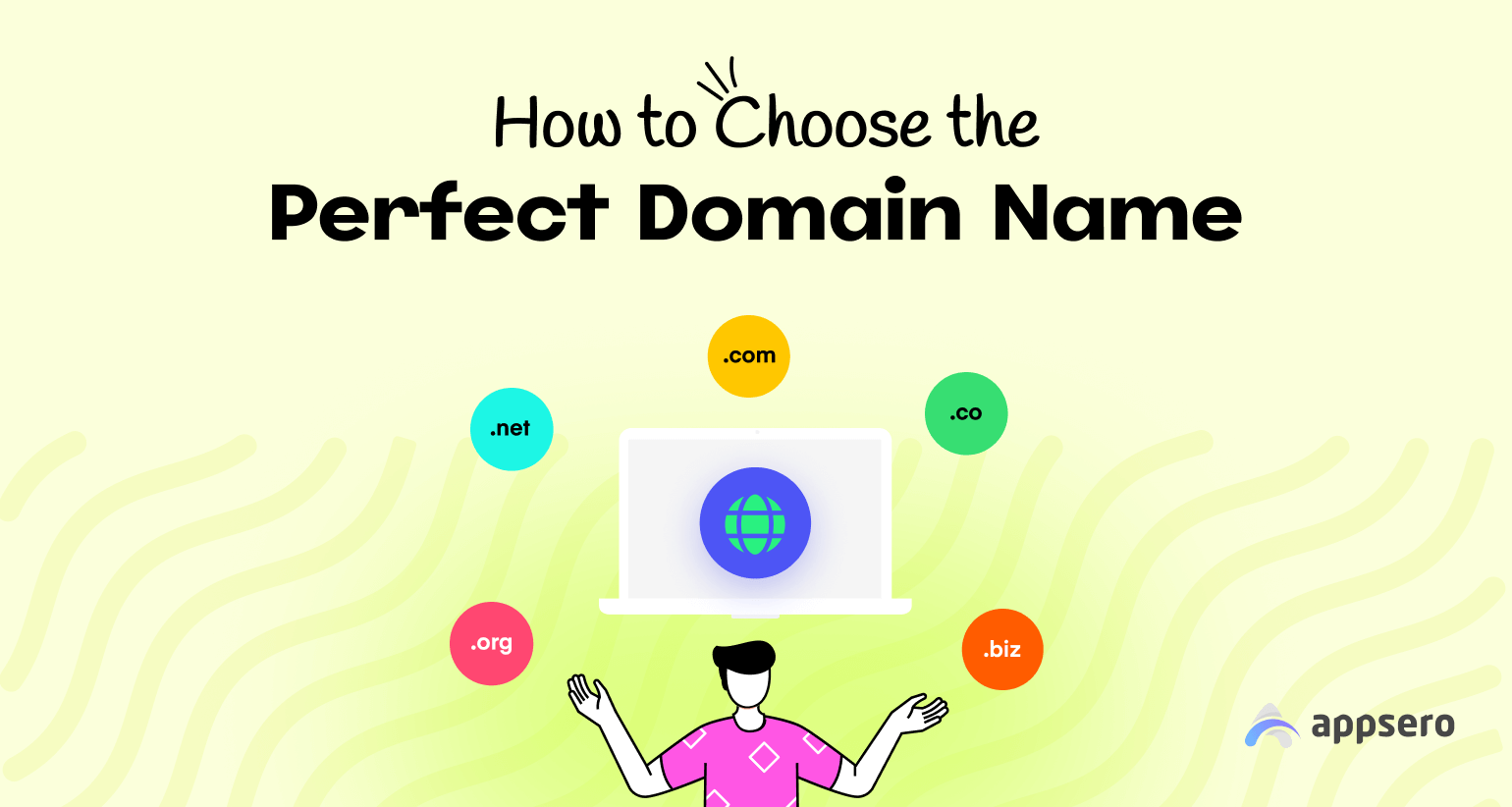In the digital world, a domain name serves as the cornerstone of your online presence. Whether you’re launching a new business, starting a blog, or establishing an e-commerce store, your domain name is often the first impression potential customers will have of your brand. Selecting the perfect domain name is crucial because it affects your brand’s identity, visibility, and success in the digital space. This guide will walk you through everything you need to know about choosing the perfect domain name for your brand.
What is a Domain Name?
A domain name is the unique address that people type into their web browsers to visit a website. It consists of two main parts:
• The name itself (e.g., “example”)
• The domain extension (e.g., “.com,” “.org,” “.net”)
For example, in the domain “www.example.com,” “example” is the name, and “.com” is the domain extension. Your domain name is an essential part of your website’s identity and plays a major role in search engine optimization (SEO), branding, and user experience.
Why is Choosing the Right Domain Name Important?
Your domain name is much more than just an address for your website. It impacts various aspects of your business:
• Brand Recognition: A memorable domain name can help customers recall your brand easily, leading to repeat visits and recommendations.
• Trustworthiness and Credibility: A professional, well-chosen domain name helps establish trust with your audience, making them more likely to engage with your website.
• Search Engine Optimization (SEO): Certain keywords in your domain name can influence your SEO rankings, helping you attract organic traffic from search engines.
• Marketing and Social Media: A domain name that aligns with your brand’s name or message makes it easier to promote across various channels like social media and digital ads.
Given its significant role, selecting the right domain name requires careful consideration.
Key Considerations When Selecting a Domain Name
When choosing a domain name for your brand, there are several factors to keep in mind to ensure it aligns with your goals, audience, and long-term vision.
a. Keep It Short and Memorable
A short, easy-to-remember domain name is essential for creating a strong online presence. Shorter domain names are easier to type, remember, and share, which enhances the chances of people returning to your website. Avoid long, complex names that are difficult to spell or recall.
Tip: Aim for a domain name that’s no longer than 15 characters to ensure it’s both concise and memorable.
b. Make It Brandable
Your domain name should reflect your brand’s identity and the values you want to convey. It should resonate with your target audience and communicate the essence of your business. A brandable domain name stands out, is easy to pronounce, and can be associated with your products or services.
Tip: Try combining two relevant words or creating a completely new word that captures your brand’s essence.
c. Avoid Hyphens and Numbers
While hyphens and numbers may seem like creative ways to secure an available domain name, they often confuse potential visitors. People may not remember whether your domain has hyphens or numbers, leading to missed traffic. Stick with letters and avoid complex characters unless they’re part of your official brand name.
Tip: A domain name without hyphens or numbers is easier to communicate and share.
d. Consider Keywords for SEO
Incorporating relevant keywords into your domain name can boost your SEO efforts by signaling to search engines what your website is about. For example, if you run a bakery, a domain like “bestbakery.com” will help improve your ranking for related search terms. However, keyword-based domain names shouldn’t sound forced or unnatural.
Tip: Use keywords that make sense for your brand and industry, but don’t overstuff the domain name.
e. Choose the Right Domain Extension
The domain extension (TLD – Top Level Domain) is just as important as the name itself. The most common and well-known extension is “.com,” but there are many other extensions available, such as “.org,” “.net,” “.co,” and industry-specific ones like “.store” or “.tech.” Your choice of extension can affect your brand’s credibility and the type of audience you attract.
• .com is the most popular and recognized extension, often seen as more credible.
• .org is commonly used for nonprofit organizations.
• .net is typically used by tech companies but can be a good alternative if the .com version of your domain name is taken.
• New TLDs like “.io” or “.ai” are popular with tech startups but may not be as universally recognized as .com.
Tip: If possible, go for a “.com” extension. It’s the most widely trusted by users and helps with credibility.
f. Check Availability and Trademark Issues
Before finalizing your domain name, you need to check if it’s available. Use domain registration platforms like GoDaddy, Namecheap, or Google Domains to search for availability. If the name is already taken, consider alternatives or negotiate with the current owner.
Additionally, ensure your domain name doesn’t infringe on any trademarks. This could lead to legal issues and force you to change your domain name later on.
Tip: Use a trademark search tool (like USPTO in the U.S.) to verify that your domain name is free from legal conflicts.
g. Make It Easy to Spell and Pronounce
A domain name that’s difficult to spell or pronounce is a major barrier to effective marketing. If people can’t easily type your domain name into their browsers, it will be harder for them to find you. Avoid using complex or confusing spellings and opt for something that rolls off the tongue.
Tip: Test your domain name by saying it out loud to see how it sounds and if it’s easy to spell.
Brainstorming and Testing Your Domain Name
Coming up with the perfect domain name can be challenging, but there are several strategies to make the process easier:
• Use a Domain Name Generator: Tools like NameMesh, Lean Domain Search, or BustAName can help you brainstorm available domain names based on your desired keywords.
• Get Creative with Word Combinations: Consider combining two or more relevant words, creating a brand-new word, or using a play on words.
• Check for Social Media Availability: Ensure that your domain name is also available as a social media handle (e.g., on Instagram, Facebook, or Twitter) for a cohesive brand identity.
After brainstorming, run your options by friends, colleagues, or potential customers to get feedback on which domain name resonates best with them.
Registering Your Domain Name
Once you’ve selected the perfect domain name, it’s time to register it. Domain registration typically involves a yearly fee, and many providers offer competitive pricing.
• Choose a Reputable Domain Registrar: Some of the most popular domain registrars include GoDaddy, Namecheap, and Google Domains. Research pricing, renewal fees, and customer support before making a decision.
• Register for Multiple Years: Domain names are typically registered for one year at a time, but registering for multiple years can save you money and prevent your domain from expiring unexpectedly.
Tip: Enable domain privacy protection to keep your personal information safe from public databases.
Conclusion
Your domain name is the foundation of your online identity. It plays a significant role in branding, SEO, user experience, and online credibility. When selecting a domain name, focus on simplicity, memorability, and relevance to your brand. By considering the right factors, testing your options, and securing the perfect domain, you’ll be setting your business up for online success. Take the time to get it right—the right domain name can make all the difference in your brand’s digital journey.











